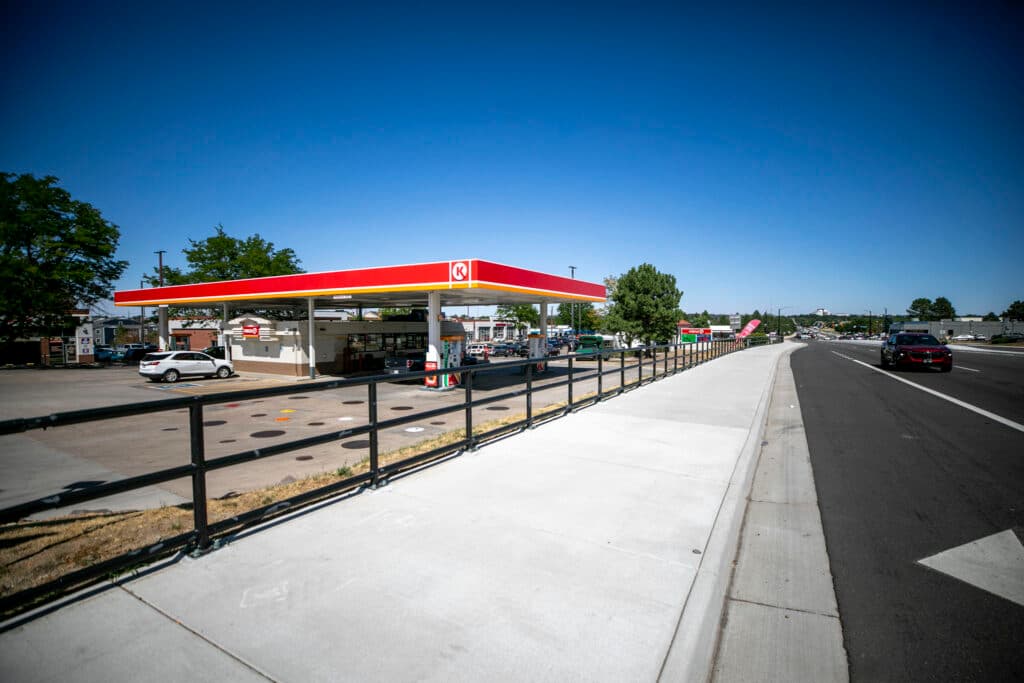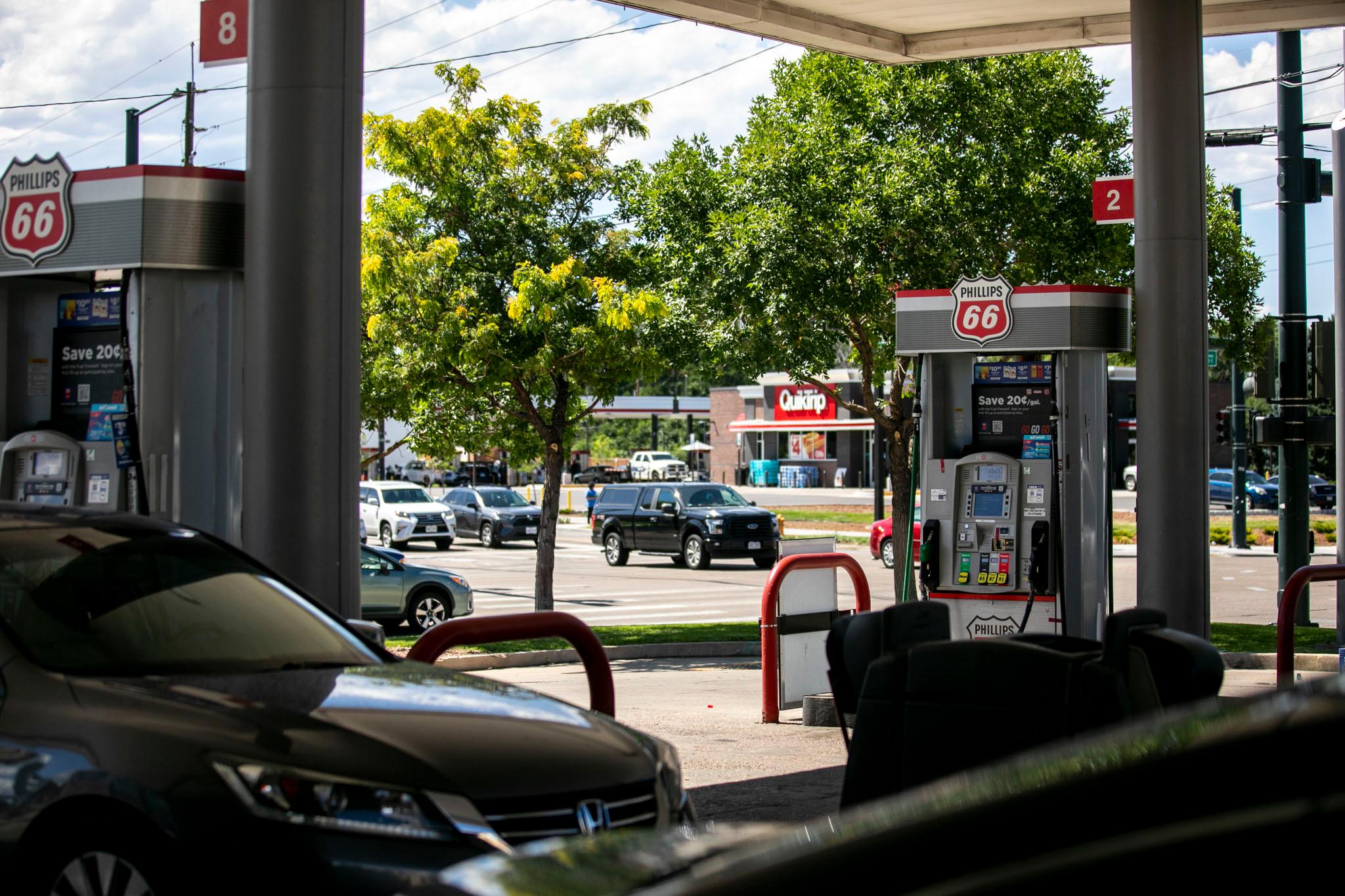Along Evans Avenue in South Denver is a one-mile stretch that is home to nine gas stations.
It’s the kind of development city leaders are trying to prevent in the future.
A group of City Councilmembers are working on a bill that would restrict where developers can build new gas stations.
They’re touting it as a housing measure, one that favors new housing, neighborhood walkability and local businesses over gas stations built specifically for cars.
“What our residents have said is, ‘We want to see housing. We want to see small businesses. We want to see coffee shops where we can go hang out with our friends that we can walk to down the street from our house,’” said Councilmember Amanda Sawyer, one of the co-sponsors behind the bill along with Councilmembers Diana Romero Campbell and Paul Kashmann. “Nowhere in any of that feedback did we hear from people, ‘We want more gas stations.’”
How would the bill work?
The bill would likely prohibit building new gas stations within a certain distance of an existing pump or a light rail station. There are also potential additional restrictions in neighborhoods with lots of single- and two-family homes.
That land could instead be used for new housing, local businesses or both.
Sawyer said the team is still figuring out the exact distances for those restrictions.
The bill would not ban new gas stations altogether, just place restrictions on where they can be built.

Crucially, Sawyer said, it would still allow for gas stations connected to grocery stories. Those pairings are often key to bringing groceries to areas without access to fresh food.
“There's got to be a balance here,” Sawyer said. “We don't want to effectively ban gas station development in Denver altogether, because we need gas stations, especially in areas of the city that aren't fully built out, like Green Valley Ranch.”
The potential rezoning is the latest in a string of bills aimed at promoting new housing and walkability.
Like many Western cities, much of modern Denver was built for cars. Just look at streets like Colfax Avenue with its long-standing motels and drive-thrus.
But Denver’s housing crisis — combined with climate initiatives aimed at promoting walkability and transit and reducing car dependency — is pushing city leaders to reconsider who city streets are meant to serve.
Last year, City Council rezoned a large swath of Colfax Avenue, restricting new businesses like drive-throughs and storage facilities. The goal there is to promote pedestrian-facing businesses in anticipation of the massive bus improvement project coming to the stretch in the next few years.
“As Denver continues to grow, we look forward to responding to Denver residents’ needs, including thoughtful planning around land use near transit corridors,” said Romero Campbell in a statement Tuesday. “We hope this is a step toward creating more spaces for our communities to be healthy, connected, and thriving.”
Reactions from local businesses have been mixed.
Existing gas stations welcome less competition, Sawyer said. But big companies looking to bring additional gas stations to the city are less supportive of the restrictions.
Reactions from residents, meanwhile, have been welcoming.
“Most residents we have heard from would like to ban gas stations altogether,” Sawyer said. “People want to see local businesses in their neighborhoods and places that they can gather and be together.”
The bill still needs work before any potential vote. Sawyer expects it to go before the Denver Planning Board in August and before City Council in November.












